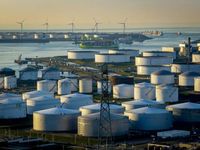The Dutch industrial landscape is facing significant challenges as two major chemical companies have announced the closure of their factories, intensifying concerns within the Tweede Kamer (Dutch Parliament) regarding the future of the nation's industry.
On March 20, 2025, the Tweede Kamer highlighted its worries about the deteriorating state of Dutch industry, particularly focusing on the recent decisions by LyondellBasell and Tronox to shut down operations in Rotterdam. These closures reflect broader issues affecting the competitive position of Dutch companies in comparison to neighboring countries. There is a consensus among political parties that steps must be taken to bolster this competitive edge.
Minister Sophie Hermans has pledged to deliver a package of measures next month aimed at revitalizing the industrial sector, although opinions vary on the best approach to achieve this goal. The urgency of the situation is palpable, especially as companies struggle under high production costs driven by energy prices and stringent CO₂ levies.
Boudwijn Siemons, CEO of the Port of Rotterdam, described the day as a tough one for the port, which historically has been a vital hub for Dutch industry. The closures signify a worrying trend as the nation becomes increasingly reliant on imports for chemical products previously manufactured domestically.
Ronald van Klaveren of LyondellBasell was particularly vocal regarding the closure, explaining the difficulty of maintaining one of their modern factories in the Netherlands due to these economic pressures. “This is one of our latest factories, but we cannot keep it in the Netherlands,” he stated, lamenting the contradiction between having advanced CO₂-efficient technologies while struggling to remain viable in the current market environment.
This sentiment was echoed by Peter Berdowski, CEO of Boskalis, who last week expressed his bleak outlook for the maritime sector, saying, “We should not be weakened by excessive environmental demands.” Boskalis has even gone as far as establishing a satellite headquarters in Abu Dhabi, indicating a shift of focus away from the Netherlands.
The political response has been one of shock and urgency. Dilan Yesilgöz, leader of the VVD party, conveyed her distress on social media, stating, “This message really hurts … Our safety and prosperity are at stake here.”
Henri Bontenbal, leader of the CDA, also voiced his concerns, warning that without significant changes, the situation could devolve into a “death trap” for industry in the Netherlands. In a recent interview, he proposed abolishing the national CO₂ tax, which adds an additional financial burden on companies already facing high European CO₂ costs.
The industry representatives are raising alarms about the wider implications of these policies. Henk Vermeer warned that Dutch industry is on the verge of collapse and that immediate action is crucial to prevent the loss of hundreds of thousands of jobs and a quarter of national prosperity.
Moreover, the repercussions extend beyond the immediate economic realm. The likelihood that products now manufactured in the Netherlands will be produced under less environmentally friendly conditions abroad contrasts sharply with the country’s ambitious climate goals. Minister Hermans has acknowledged that the industry is grappling with significant challenges. However, she remains steadfast in her support for the existing CO₂ levy, countering that it does not impose an unreasonable burden on businesses.
As tensions rise over the country’s economic future, experts emphasize that rising interest payments on government debt are compounding the issues. The OECD reports that the average interest costs in advanced economies are set to reach 3.3% of GDP in 2024, a significant increase from the 2.4% recorded in 2021. This is the highest level seen since at least 2007.
Additionally, the total amount of government bonds among high-income nations is projected to hit an unprecedented $17 trillion by 2025, escalating concerns about international debt sustainability.
Against this backdrop, the mainstream media has begun to highlight rising inflation expectations and the increasing value of scarce commodities like gold — a reaction to the declining value of currencies. This trend underscores the urgent need for economic reform as the global money supply approaches record levels.
Despite the challenging landscape, there is a profound disconnect between political ambitions to save the world and the realities that industries face on the ground. The pressure to implement stringent environmental regulations, while often well-intentioned, could lead to devastating consequences for the domestic industry.
As the Dutch industrial sector grapples with these overwhelming challenges, it remains to be seen how the government will navigate the fine line between climate ambitions and economic viability. The hope is that the forthcoming proposals from Minister Hermans will address these complexities and provide a path forward for a sector that is crucial to the nation’s economic health.



